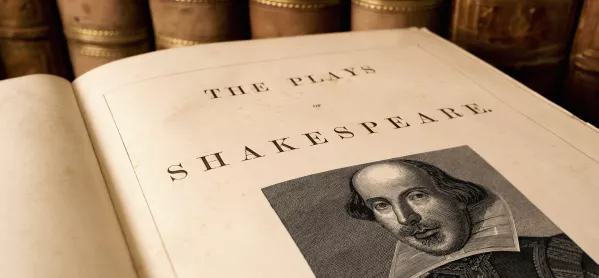What feels like aeons ago (but in reality was about a month ago), pressure from parents and teachers led to a consultation on whether GCSEs should have amendments to mitigate the disruption to the “Covid cohorts”.
For students, the main outcome of this was the news that their English literature exam was going to be significantly reduced.
The guidelines said: “Centres will have the option to focus on particular texts. All students will be assessed on a play by Shakespeare and on two of the remaining three areas of content: poetry; 19th-century novel; or fiction/drama from the British Isles from 1914.”
As to the finer detail of this announcement, there is, as yet, little real clarity from Ofqual. And the official line from the exam boards is “we don’t yet know”.
Read more:
GCSEs 2020: What should you do with your results data?
University: Do GCSEs really matter when applying for a degree?
A levels 2020: Grades ‘utterly unfair and unfathomable’
In a year in which teachers, department leads and senior leadership have dealt with a surfeit of sudden changes, we now find ourselves in yet another confusing position.
So, how can you plan when there is no plan?
Shakespeare, Shakespeare, Shakespeare
As we know, there is no moving the Bard, so we might as well begin with him.
If you chose to teach your Shakespeare play via home learning, then you’re going to need to recap and check understanding anyway. And if you didn’t, well, this is a chunky part of the course and it is going to need your attention. So it makes sense to start here.
Not only is it a safe bet in this respect, but you can also weave in the requirements for non-fiction using the wider context parts of the text. Your English language preparation is then covered when you look at non-fiction articles about witchcraft and depictions of strong women.
Give language all you’ve got
Another equally worthy approach would be to tackle the less contentious language paper first. We know that this exam will be identical to the 2019 paper, so this is a much more straightforward topic.
It is worth noting that although the update stipulates that we don’t have to record a spoken language performance, it does say we do need to still do it.
My tip here is to utilise the non-fiction creative writing, and devote a lesson to performing speeches in groups.
However tempting it might be to strip back this part of the course, we can’t just discount public speaking because it is a vital life skill, and the outcome still needs to be reported.
Now wait...
The hope would be that, in the meantime, everyone gets their act together and gets the information out to teachers.
If we have hedged correctly, then we should spend the weeks where we await the news simply recapping previously covered content and keeping all options open, preventing the need for big U-turns once the final news drops.
Laura May Rowlands is head of faculty for English and literacy at Woodlands Community College in Southampton




